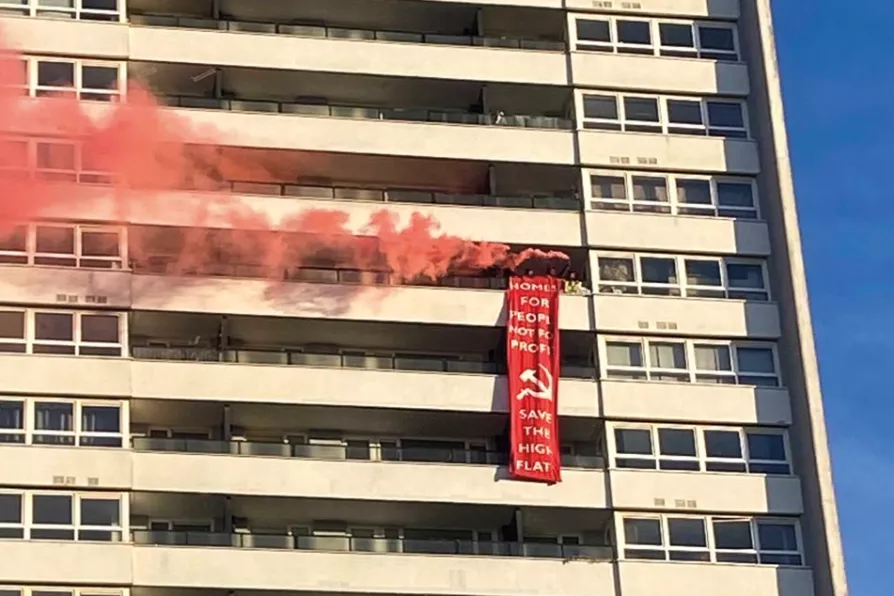LUKE FLETCHER outlines Plaid Cymru bold plans for wide-ranging policy consultations with trade unions in Wales

 A YCL banner hangs from one of the occupied tower blocks
A YCL banner hangs from one of the occupied tower blocks
AS CHAIR of Wyndford Resident’s Union (WRU) I supported our community fightback against energy price gouging in April 2022, when we forced SSE to enact a price freeze for 10,000 households across Scotland.
We are a community-led union that knows how to win. So when Wheatley Homes, Scotland’s largest social housing monopoly, began a crusade against our community through the demolition of four 26-storey high-rise blocks, we were ready to launch a fightback with power in our punch.
The high-rise buildings on Wyndford Road, containing a total of 600 socially rented homes, were built in the 1960s to accommodate retired tenants in one-bedroom and bedsit flats. They were highly lucrative properties, which at one point had Glasgow’s elderly population queueing to get in.

Building is the solution for much of our housing crisis – and will also help to address poverty, ill health, and even anti-social behaviour and alienation, writes KENNY MacASKILL

CAROL WILCOX argues for the proper implementation of the land value tax, which could see unused plots sold off and landlords priced out of landlordism, potentially resolving the housing and planning crises












